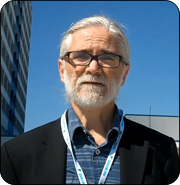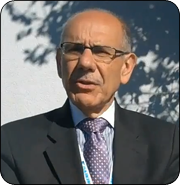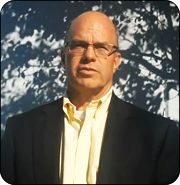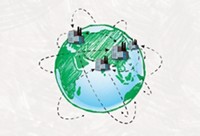Advertisement
Grab your lab coat. Let's get started
Welcome!
Welcome!
Create an account below to get 6 C&EN articles per month, receive newsletters and more - all free.
It seems this is your first time logging in online. Please enter the following information to continue.
As an ACS member you automatically get access to this site. All we need is few more details to create your reading experience.
Not you? Sign in with a different account.
Not you? Sign in with a different account.
ERROR 1
ERROR 1
ERROR 2
ERROR 2
ERROR 2
ERROR 2
ERROR 2
Password and Confirm password must match.
If you have an ACS member number, please enter it here so we can link this account to your membership. (optional)
ERROR 2
ACS values your privacy. By submitting your information, you are gaining access to C&EN and subscribing to our weekly newsletter. We use the information you provide to make your reading experience better, and we will never sell your data to third party members.
Business
China’s Priority Changes Impact Pharmaceutical Chemicals
Companies from East and West brace for an era of regulatory reform
by Rick Mullin
October 7, 2013
| A version of this story appeared in
Volume 91, Issue 40

China has garnered a great deal of attention since its energetic new president, Xi Jinping, took office in March. Xi, whose break from his predecessors’ style was illustrated by a rare meeting with a U.S. president earlier this year in California, has been adamant in his commitment to making the economic and environmental changes necessary to bring China along on what he sees as its path to becoming the dominant global superpower.
The recent high-profile corruption trial of former Politburo member Bo Xilai and the slightly less dramatic bribery prosecution of GlaxoSmithKline heralded the Xi regime’s crusade against corruption to the world. But there is substance behind the show. A five-year plan for China, which runs until 2015, emphasizes the enforcement of regulations. And a raft of new environmental laws setting air, water, and solid waste standards went into effect this summer.
Many in industry view Xi’s crackdown on corruption and enhancement of environment and safety practices as positive developments that will elevate China as a global competitor. Others, primarily U.S. and European firms operating in China, are on edge. They describe a Byzantine regulatory environment that fosters noncompliance, and they fear Western companies will be primary targets under a new regimen of law enforcement.

The case brought against GSK, which was accused of paying physicians to prescribe its drugs, is seen by some Western executives as an example of China targeting a Western firm that competes with Chinese manufacturers in an important market. Chinese managers are quick to counter, citing reports in the Chinese press, including by state-run television, that firms such as Gan & Lee Pharmaceuticals and Chia Tai Tianqing Pharmaceutical Group are accused of bribing doctors.
Nonetheless, there is broad consensus that new environmental regulations and heightened enforcement will increase operating costs at a time when salaries are already rising in China. The rules also coincide with a shift toward higher-technology chemical manufacturing and research services, which runs counter to China’s traditional low-cost basic chemistry business model. Although opinions differ on whether the change in China is good or bad for business, all agree that change is under way.
Of the Western company executives C&EN interviewed, three requested that their names be withheld to avoid jeopardizing business dealings in China. One was insistent that the industrial environment has become treacherous for foreign firms.
“I don’t think the Chinese want to exclude the West,” he says. “There is no conspiracy theory. But the Western firms are very easy targets because they do not have any important connections” with local authorities, he says. When it comes to industrial facilities, “the whole design of registration is deliberately made to be complex so that it is impossible to be in compliance.”
To build a manufacturing plant, he explains, a company needs to apply for an industrial license, providing specific information on equipment, the materials and solvents to be handled, and production capacity. “The legislation does not contemplate any kind of multipurpose building,” such as would be found in an active pharmaceutical ingredient (API) plant, he says. “It is not possible to license a multipurpose building. So, how do you explain China’s success at custom synthesis? How can a country grow at 30% a year in our business when the legislation, in fact, makes it impossible? People are not complying with the legislation.”

Sales & Business Development
Flamma SpA

Global Business Development
Sundia MediTech Co.

Business Development & Sales
Siegfried
What’s evolved, he says, is a cat-and-mouse game in which local authorities keep their eyes shut and let companies do business, knowing they can step in and fine or close facilities at any time. Xi, this executive says, has pledged to end the corruption underpinning the system. “They have been saying that since Mao, but it appears Xi is taking it to task.”
Speaking on a panel at the Pharma ChemOutsourcing conference and exhibition in Long Branch, N.J., last month, Jon Brice, director of business development for Asymchem, a U.S.-based API company that does all of its manufacturing in China, acknowledged the regulatory morass but said that policy is indeed evolving toward Western standards. “For years the regulatory language has been Byzantine, but lately the government has kicked it into gear, and we have seen a logical and rapid evolution toward a regimen that everyone understands.”
He said the country has been looking toward U.S. and European legislation, such as the Registration, Evaluation, Authorisation & Restriction of Chemicals (REACH) initiative for regulation of commercial chemicals in Europe, which requires companies to submit extensive chemical data. Social pressure is mounting against polluting industries, he noted, and the government has responded to protests by closing chemical facilities.
Brice characterized the current movement in China as a delayed echo of developments in the West. “It looks like U.S. policy circa 1970,” he said. “A period of rapid growth is followed by the understanding that it can’t keep up.” The fruits of the current initiative will be discernible toward the end of the current five-year plan, he told C&EN after the panel presentation.
Still, according to William E. Allmond IV, vice president of government and public relations at the Society of Chemical Manufacturers & Affiliates (SOCMA), a U.S. custom chemicals trade association, much of the change is being enacted behind closed doors and with some randomness. He tells C&EN that U.S. companies are concerned that China will enact “REACH-like” regulations, which SOCMA opposes, without soliciting input from the Western governments and businesses that China wishes to emulate.
“There is a lack of the kind of openness that we have had with Taiwan, South Korea, and other Asian countries,” Allmond says. SOCMA was encouraged by Xi’s meeting with President Barack Obama, during which the Chinese president agreed to take measures to prevent intellectual property theft, but it was concerned about a lack of information about the measures being taken.

Chemical & Pharmaceutical Solutions

Porton Americas
Executives with Chinese firms are less equivocal in their enthusiasm for the changes. “China now is more focused on the environment, which it absolutely needs to be,” says James Wu, chief executive officer of Chiral Quest, which manufactures in Nanchang, Jiangxi province. “In the past 20 or 30 years, China was more focused on gross domestic product, which is not the correct focus. So what the government is trying to do is good, and every company needs to support it.”
Wu acknowledges that many laws already on the books have not been followed in a straightforward manner and that the government has a long way to go to bring industry into compliance. Operating costs will increase, he says, but that will create a level playing field as firms that do not comply drop by the wayside.
Mingzhang Chen, general manager of the API contract manufacturing business of WuXi AppTec, acknowledges China’s sketchy regulatory history. “Some of the rules in China are not enforceable,” he says. “For the past 30 years, economic growth has been the driving force. In order to do that, some rules had to be ignored. The rules are there, just not enforced.”
But Chen also says that is changing. “The government will still want to have economic growth, but it will encourage a new type of economy,” one characterized by advanced technology and minimum environmental impact, he says.
WuXi’s API business is the kind that China is promoting, Chen says, and the government is turning to companies like his for guidance. “We have to educate them,” he says. “They know this is a good company, so they will listen.” As for the additional costs of complying with new environmental regulations, Chen believes they will be offset by efficiency improvements that will reduce energy and other operating costs, including investment in chemical waste treatment and other technologies.
Hao Hong, Asymchem’s CEO, agrees, calling the increasing costs something larger companies will have to digest through efficiency gains. Moreover, Hong says the cost of doing business will lead to a consolidation of small manufacturers that use “older, dirty chemistry for really cheap raw materials. I think this will have a positive result.”

Hongene Biotechnology USA

Asymchem

GlobalBusiness Development
Chiral Quest
Although the cultural and industrial evolution taking place in China makes sense on paper, the challenges are huge, executives say. And the government has so far exhibited little finesse in addressing the environmental impact of industry, sources say. There is concern that whole industrial parks will be closed if one company violates pollution rules as environmental laws are being enforced more vigorously.
Community relations are also a particular headache in China. An anonymous source recounts an incident three years ago in which two bodies were left at the gate of his firm’s factory by families seeking restitution, claiming the men died in motorcycle accidents coming home from a night shift at the facility. He says the company determined that the men worked on the day shift and died in a car accident more than a day after their last day of work.
More typically, manufacturers face protests from communities concerned about health and safety. Earlier this year, Shell and its Chinese and Qatari partners were reported to have abandoned plans to build a refinery in Taizhou, on China’s eastern coast, because of citizen concerns that it would produce p-xylene, a chemical that has emerged as a lightning rod for activism in China (C&EN, Sept. 30, page 22). A drug company executive who doesn’t have clearance to speak on the record notes that the push to enforce environmental regulations is partly a response to increased pressure from the public.
And those regulations will impact choices made by pharmaceutical companies regarding where they will source their APIs, he says. “This is all a very good thing for the environment and the people working at the plant, but it’s eroded the financial incentives for working in China,” he tells C&EN. “That gives you the opportunity to weigh more carefully whether you want to work in China or whether you want to work in North America or Europe.”
Pharmaceutical companies are reticent about speaking on the record about China, but sources tell C&EN that the recent crackdown has not affected the top-tier vendors with whom they contract for API manufacture. Nor are they overly concerned that GSK’s problems herald trouble for all Western firms working in China.

And the new tone in China isn’t preventing Western firms from investing there. Earlier this year, the Swiss firm Siegfried announced it will spend $60 million to build a pharmaceutical chemicals facility in Nantong, north of Shanghai. And despite talk of rising costs and a trend toward higher-value chemistry, the firm intends to manufacture intermediates in China and ship them to Switzerland for conversion into APIs via more advanced chemical processes. This approach, as described by Rudolf Hanko, Siegfried’s CEO, reflects the fact that chemical manufacturing is less integrated than other industrial processes, allowing a firm to work at two sites on one product.
“I hesitate to say this as a chemist, but I have to admit that chemistry is a comparatively less developed technology in that it does not allow for convergent manufacturing processes,” Hanko says. Unlike an automobile, which can be assembled in less than a day on a 100-meter manufacturing platform, fine chemicals can involve 10 or more nonparallel processes and take months to manufacture. This relative inefficiency, however, offers chemical firms a unique opportunity to split the supply chain, Hanko says, by performing the last steps in an area with high-quality standards and the earlier steps where costs are low.
Hanko acknowledges that navigating hurdles in licensing and registration requires partners, and he says Siegfried has a good one: Nantong Economic & Technological Development Area, a government engineering and site management agency. “We have seen many projects in China, but never one like this in which we had all the permits and licenses so fast,” he says. Siegfried had everything it needed in less than six months.
Local cooperation helps, but more important to long-term success in China, observers agree, is clarity on how the government will proceed. According to Oliver Ju, CEO of the Chinese pharmaceutical chemical maker Porton, a meeting next month of the Third Plenary Session of the 18th Communist Party of China Central Committee may shed some light on the path forward.
Advertisement
“But the direction, and priority, is already seen since early this year,” Ju says. “In my view, it’s quite clear that the new leadership strives to transform China into a more market-oriented economy.”




Join the conversation
Contact the reporter
Submit a Letter to the Editor for publication
Engage with us on Twitter